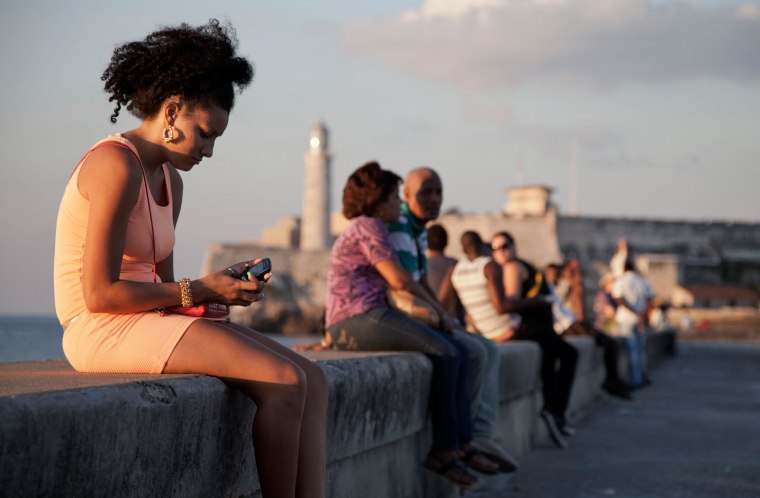The U.S. government masterminded the creation of a "Cuban Twitter" — a communications network designed to undermine the communist government in Cuba, built with secret shell companies and financed through foreign banks, The Associated Press has learned.
The project, which lasted more than two years and drew tens of thousands of subscribers, sought to evade Cuba's stranglehold on the Internet with a primitive social media platform. First, the network would build a Cuban audience, mostly young people; then, the plan was to push them toward dissent.
Yet its users were neither aware it was created by a U.S. agency with ties to the State Department, nor that American contractors were gathering personal data about them, in the hope that the information might be used someday for political purposes.
It is unclear whether the scheme was legal under U.S. law, which requires written authorization of covert action by the president and congressional notification. Officials at USAID would not say who had approved the program or whether the White House was aware of it. The Cuban government declined a request for comment.
At minimum, details uncovered by the AP appear to muddy the U.S. Agency for International Development's longstanding claims that it does not conduct covert actions, and could undermine the agency's mission to deliver aid to the world's poor and vulnerable — an effort that requires the trust and cooperation of foreign governments.
USAID and its contractors went to extensive lengths to conceal Washington's ties to the project, according to interviews and documents obtained by the AP. They set up front companies in Spain and the Cayman Islands to hide the money trail, and recruited CEOs without telling them they would be working on a U.S. taxpayer-funded project.
"There will be absolutely no mention of United States government involvement," according to a 2010 memo from Mobile Accord Inc., one of the project's creators. "This is absolutely crucial for the long-term success of the service and to ensure the success of the Mission."

The project, dubbed "ZunZuneo," slang for a Cuban hummingbird's tweet, was publicly launched shortly after the 2009 arrest in Cuba of American contractor Alan Gross. He was imprisoned after traveling repeatedly to the country on a separate, clandestine USAID mission to expand Internet access using sensitive technology that only governments use.
USAID said in a statement that it is "proud of its work in Cuba to provide basic humanitarian assistance, promote human rights and fundamental freedoms, and to help information flow more freely to the Cuban people," whom it said "have lived under an authoritarian regime" for 50 years. The agency said its work was found to be "consistent with U.S. law."
Sen. Patrick Leahy, D-Vt., and chairman of the Appropriations Committee's State Department and foreign operations subcommittee, said the ZunZuneo revelations were troubling.
"There is the risk to young, unsuspecting Cuban cellphone users who had no idea this was a U.S. government-funded activity," he said. "There is the clandestine nature of the program that was not disclosed to the appropriations subcommittee with oversight responsibility."
The AP obtained more than 1,000 pages of documents about the project's development. It independently verified the project's scope and details in the documents through publicly available databases, government sources and interviews with those involved in ZunZuneo.
The estimated $1.6 million spent on ZunZuneo was publicly earmarked for an unspecified project in Pakistan, public government data show, but those documents don't reveal where the funds were actually spent.
For more than two years, ZunZuneo grew and reached at least 40,000 subscribers. But documents reveal the team found evidence Cuban officials tried to trace the text messages and break into the ZunZuneo system. USAID told the AP that ZunZuneo stopped in September 2012 when a government grant ended.